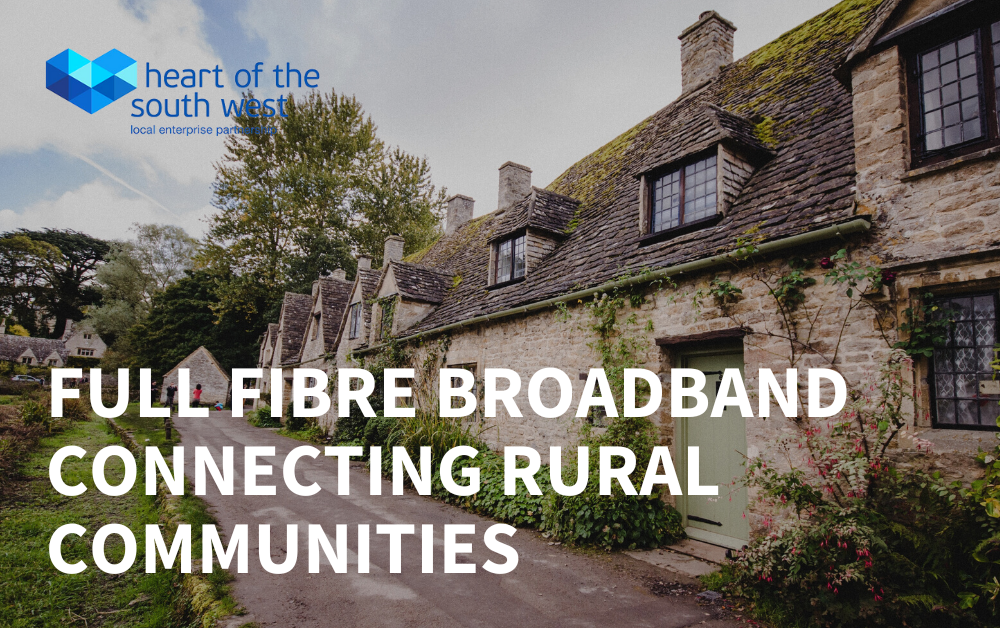Wessex Internet’s full fibre rollout on behalf of Connecting Devon and Somerset (CDS) is taking in some of the most hard-to-reach rural areas of South Somerset.
Among the most recent communities gaining improved connectivity as part of the publicly funded CDS programme is the hamlet of Cockhill, near Castle Cary.
Although Cockhill may be home to a handful of properties, thanks to public funding from CDS, residents will soon have access to ultrafast full fibre broadband with the same speeds as that of towns and cities across the UK.
Councillor Mike Rigby, CDS Board Member and Somerset Council Lead Member for Transport and Digital, joined Wessex Internet and CDS staff on site to view progress on the infrastructure build.
He said: “The machinery Wessex Internet has to carry out this project in digging under roads and dragging the fibre through fields with the plough means it’s far less intrusive than traditional methods of infrastructure provision. The less disruption on the highway to the travelling public the better.
“The cost of connecting these sparsely populated areas, where you’ve got rural farmhouses, would be far too great on a purely commercial basis and they wouldn’t get covered without the support of CDS. Devon and Somerset are very rural counties and CDS is enabling us to provide Gigabit capable fibre broadband speeds to small and medium size enterprises so they can operate in rural locations.
“Quite a few rural businesses can’t operate on the speeds of broadband they’re currently being provided with. Being able to upgrade them to such a huge extent will have a big impact on the ability of rural locations to support small and medium size businesses which are the backbone of employment in our counties.”
Work is currently continuing on the three-year programme in East Coker, Pendomer, Yeovil Marsh, Mudford and Closworth.
It follows the completion of build in Babcary, Marston Magna and Sutton Montis.
Hector Gibson Fleming, CEO of Wessex Internet, said: “Rural build is always challenging but our team is doing a fantastic job of planning and building the routes and we’re really pleased with progress. Cockhill is a classic example of the challenges of building in these areas – very low density of housing, large amounts of infrastructure needed per property so it tests our teams to plan the most efficient routes while minimising the impact on local residents.
“The extension to our contract of around 1,000 properties is allowing us to push our rollout further west. As we go through that build we’ll see connections to more hard-to-reach properties in areas that previously wouldn’t have benefited from the subsidised funding through CDS.”
Karl Tucker, Chair of the Heart of the South West LEP, said: “Rural communities often struggle to get ultrafast broadband and keep up with the digital transformation, so it’s vital that we help people and businesses in these areas to get connected. These rollouts will also help to support and encourage local businesses, which play a crucial role in our region’s economy. We are delighted to be supporting CDS and Wessex Internet as we connect more and more premises across the South West.”
CDS has delivered superfast access to more homes and businesses than any other broadband programme in England, with over 315,000 premises receiving access to superfast broadband as a direct result of investment by CDS.
The CDS programme is funded by the Department for Digital, Culture, Media and Sport, Heart of the South West LEP, CDS local authorities, European Regional Development Fund and the Rural Development Programme for England.
Residents and businesses can visit www.wessexinternet.com and use the postcode checker to find out if their property is covered.


